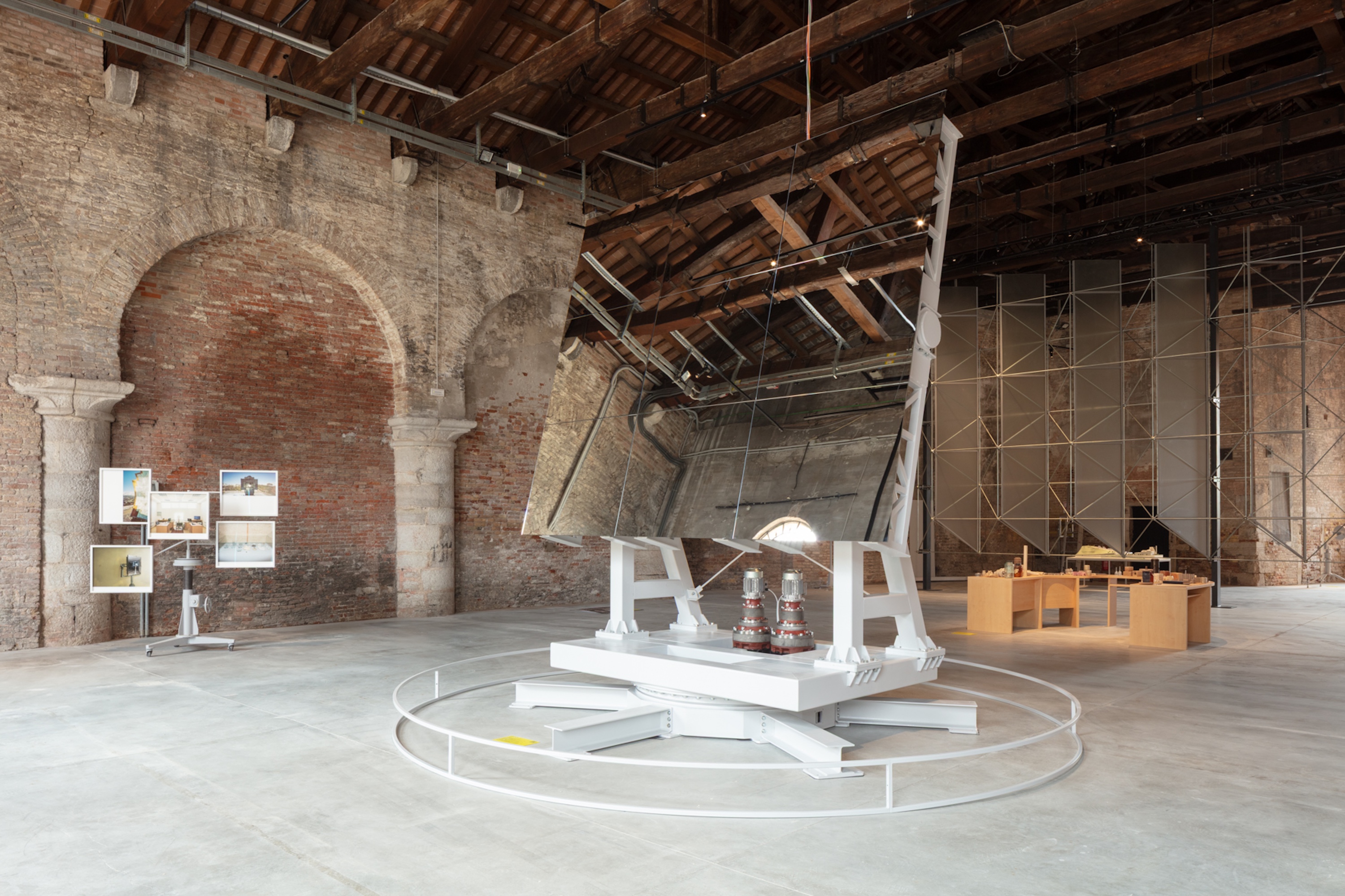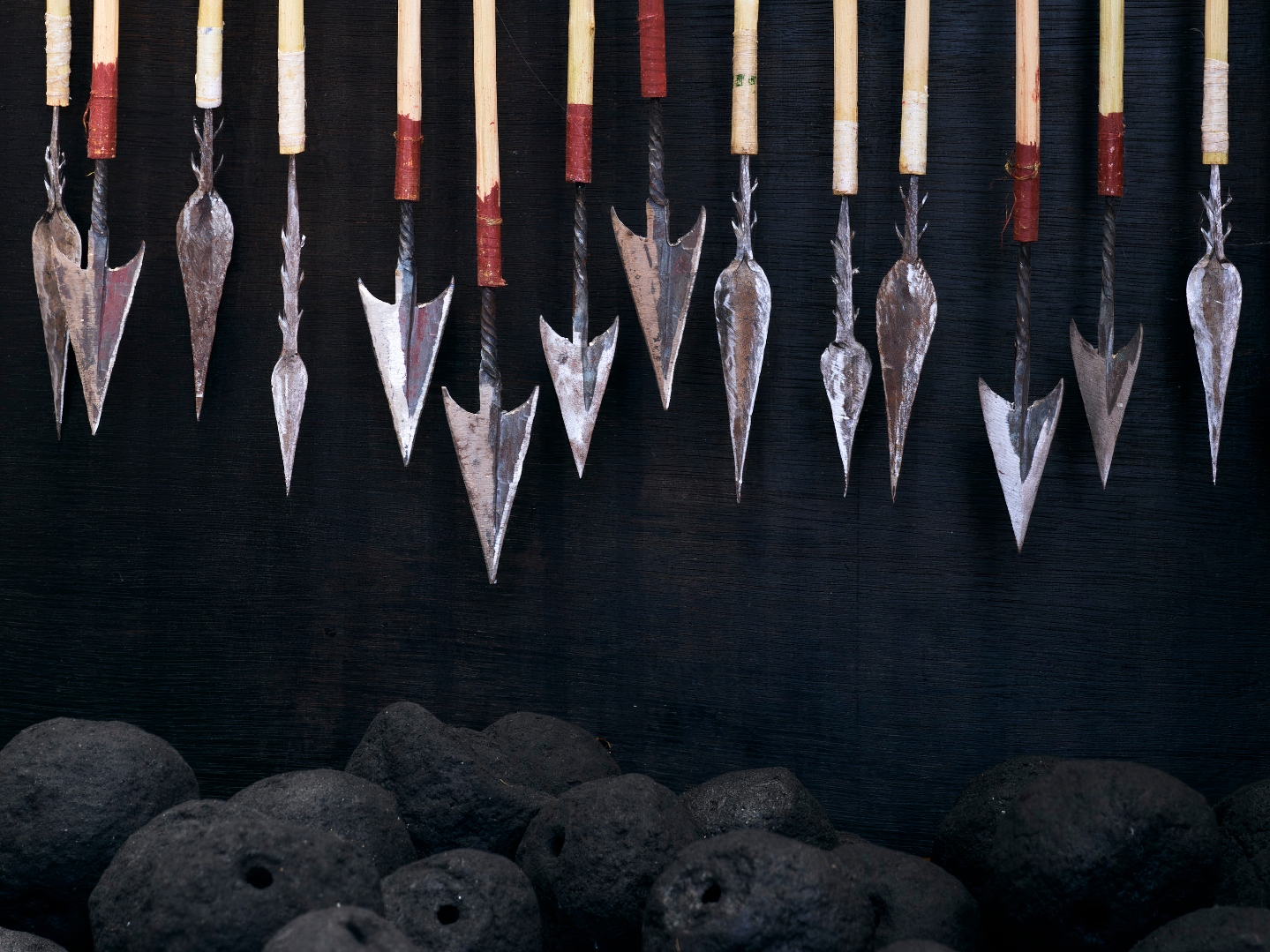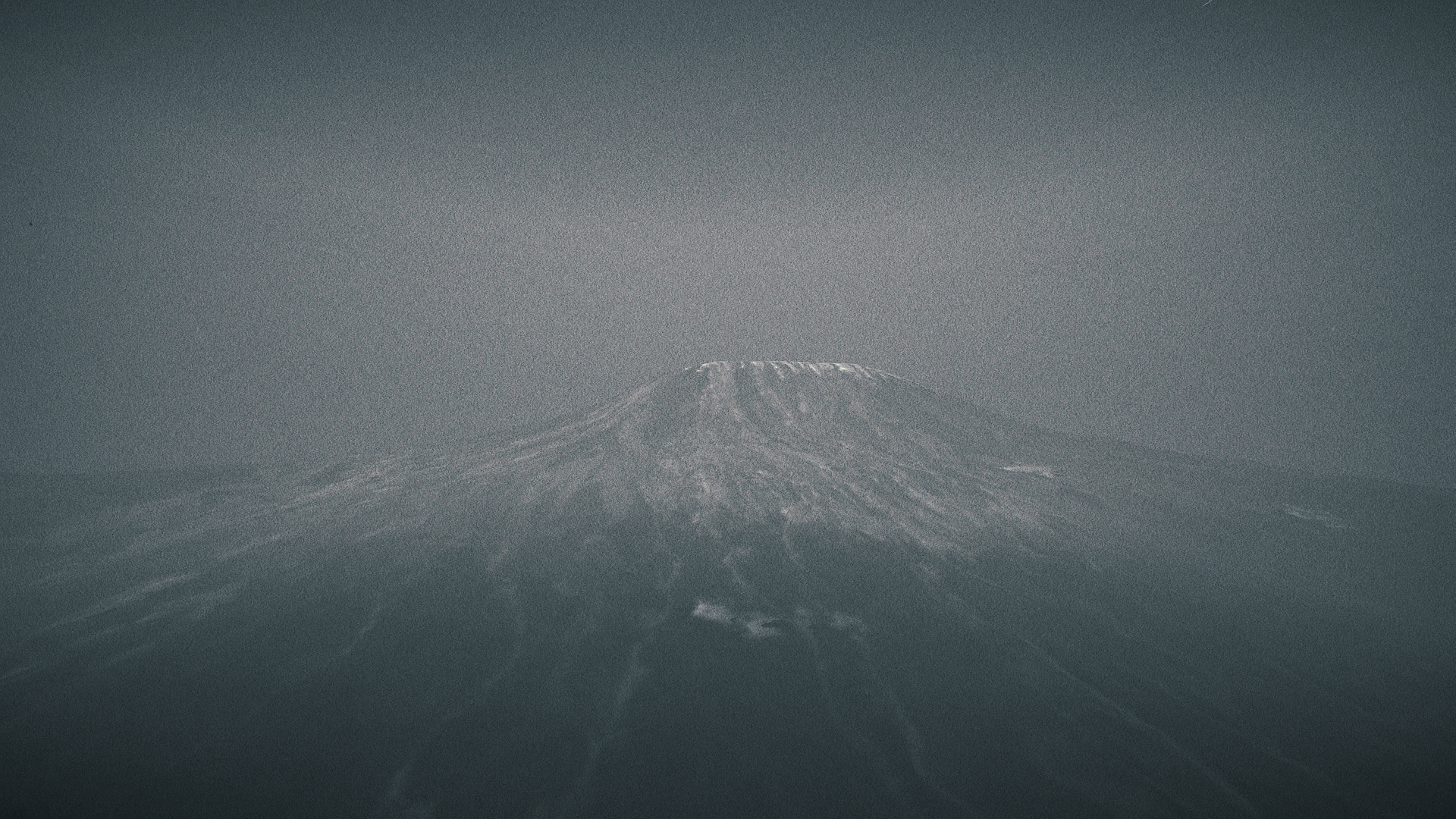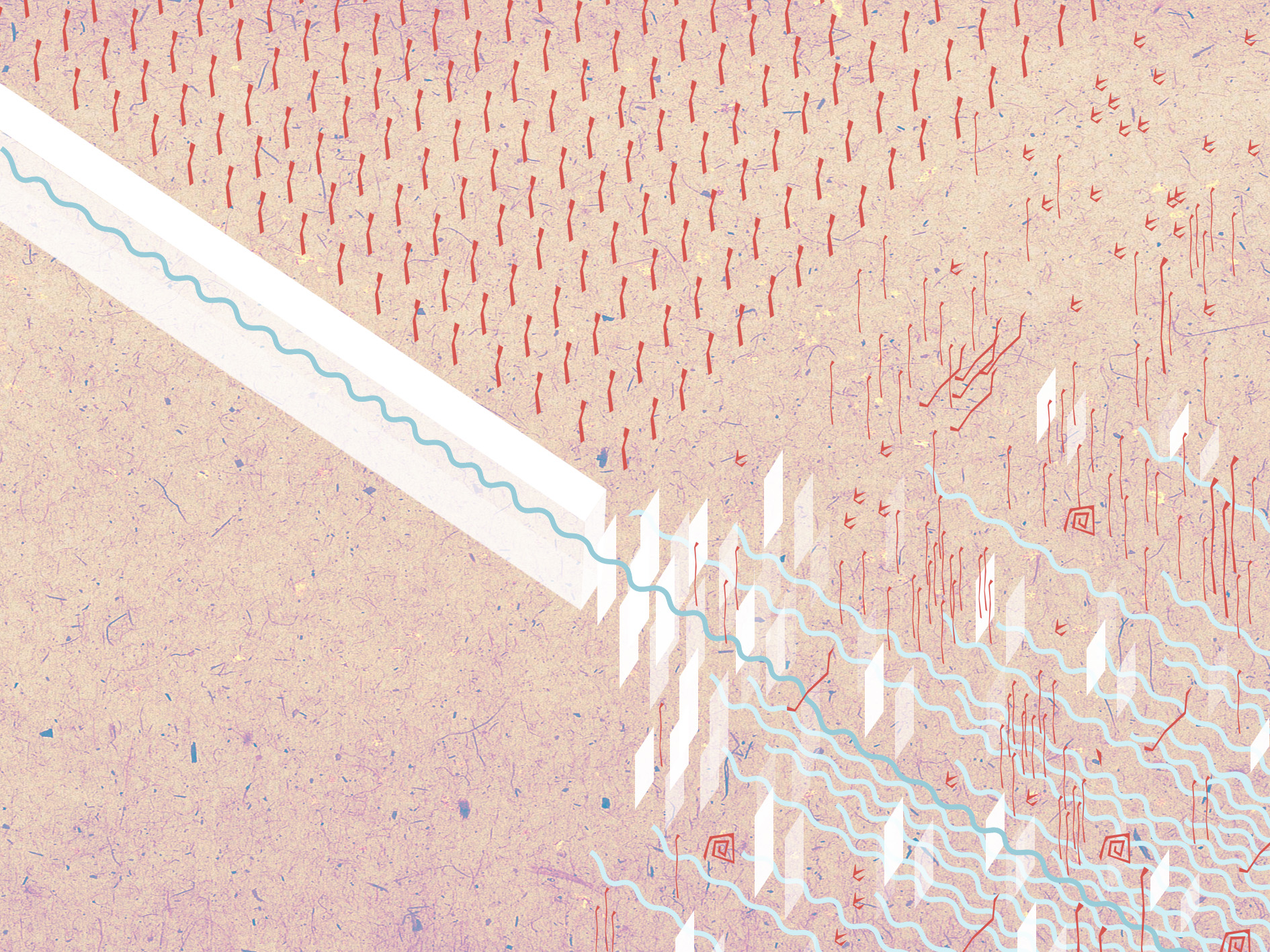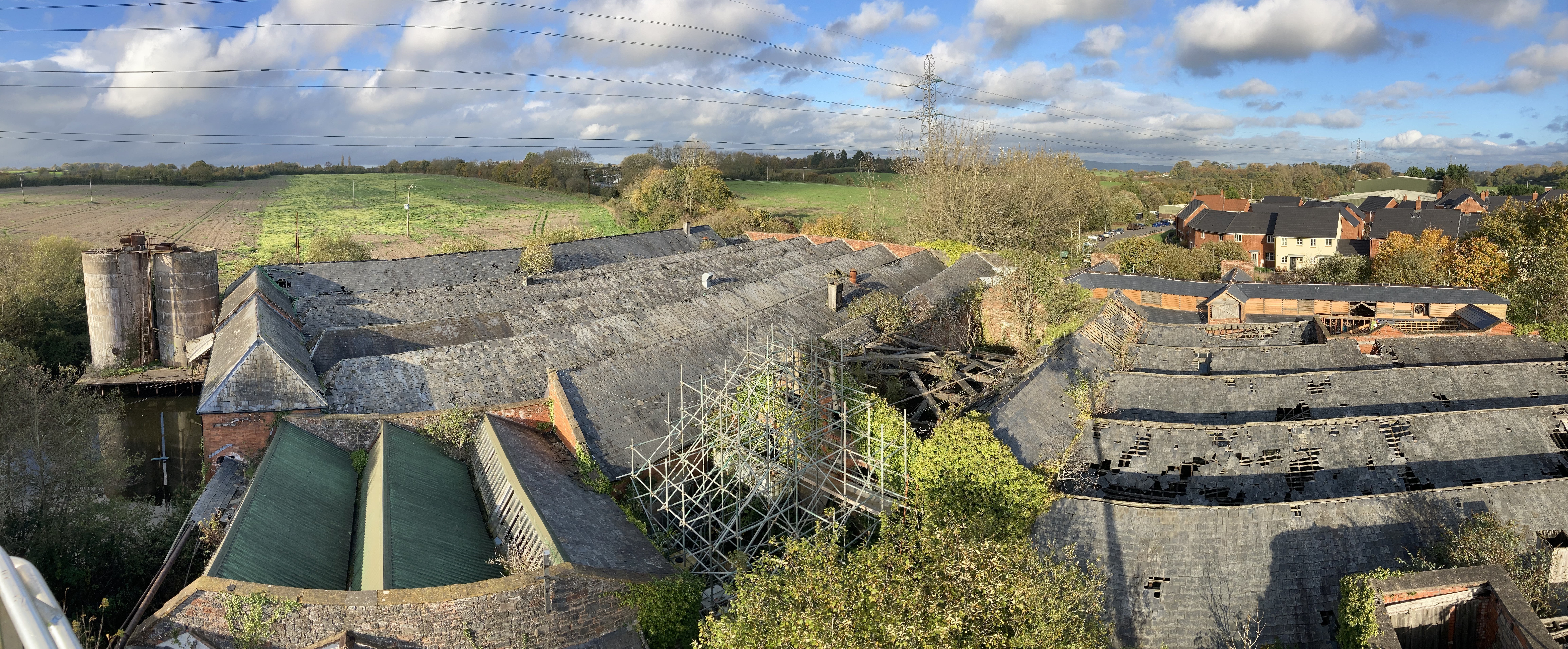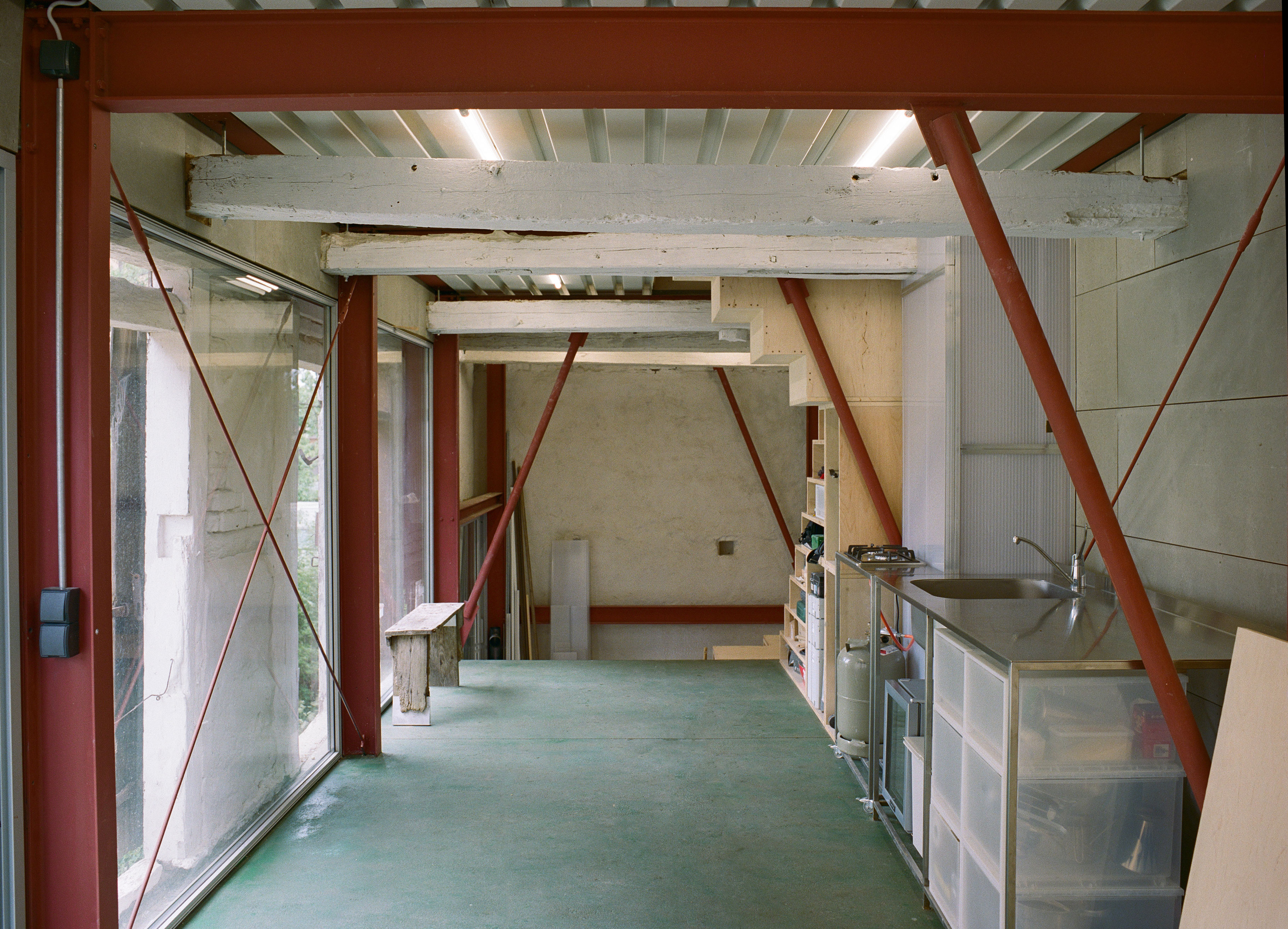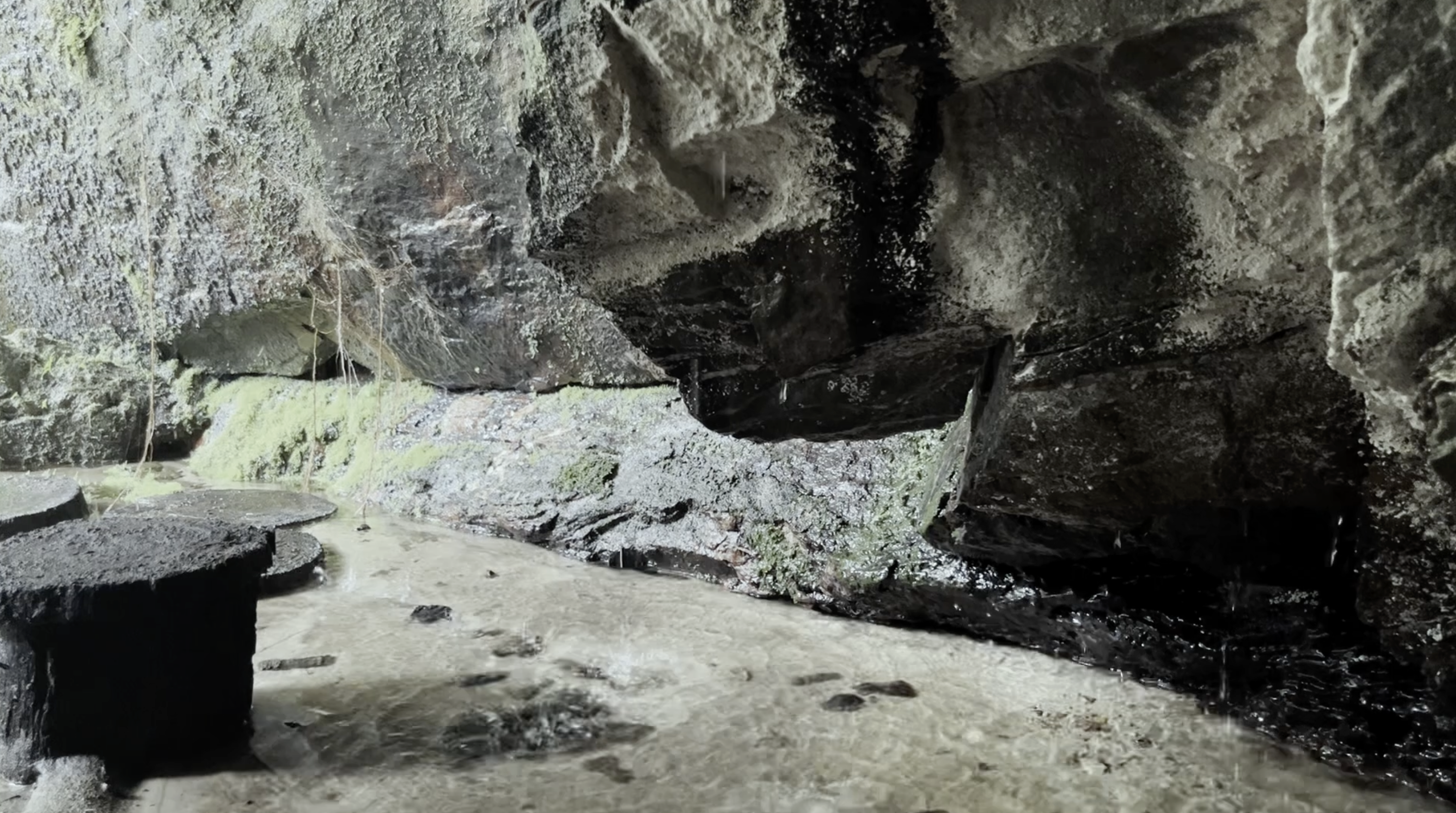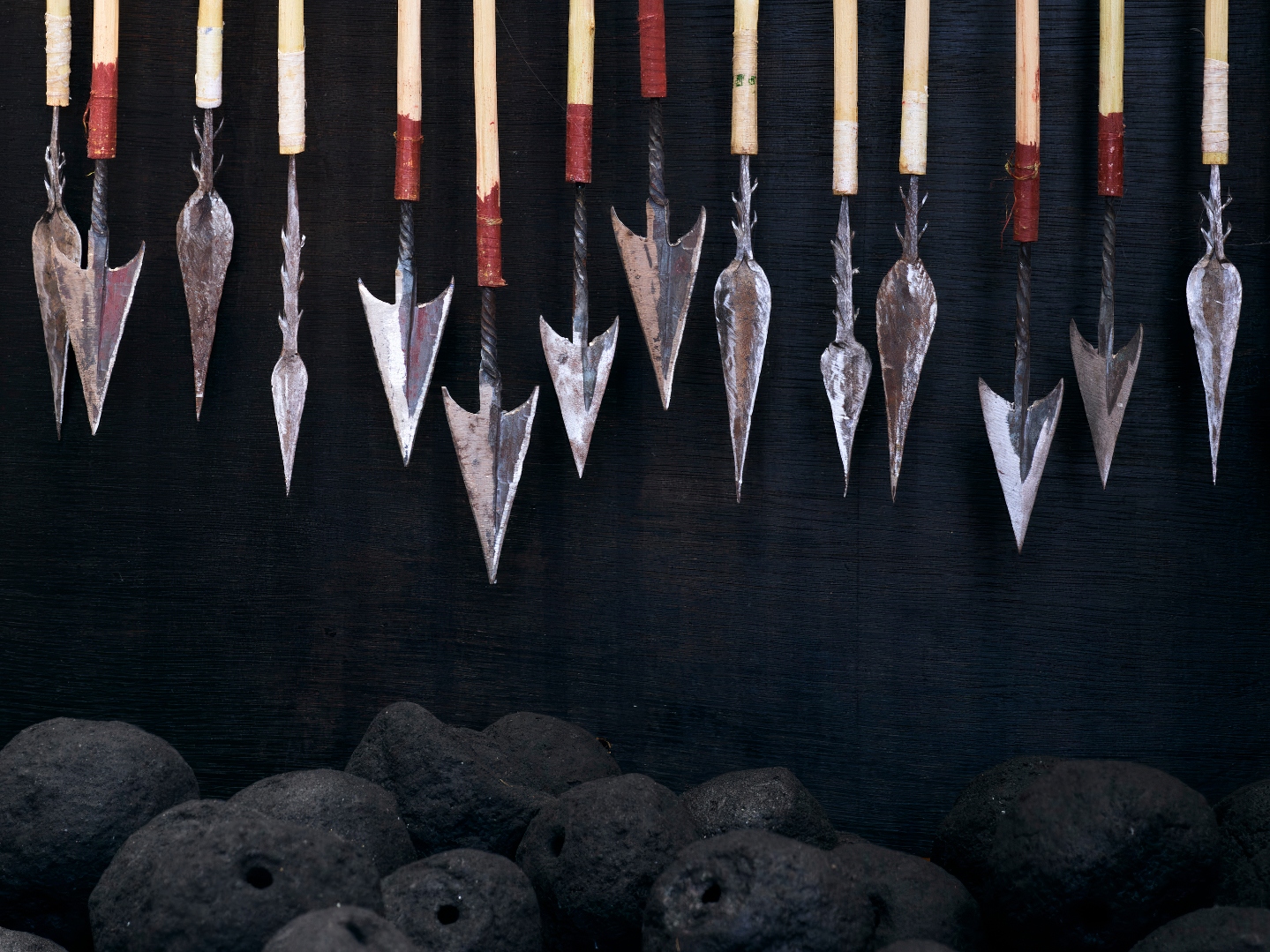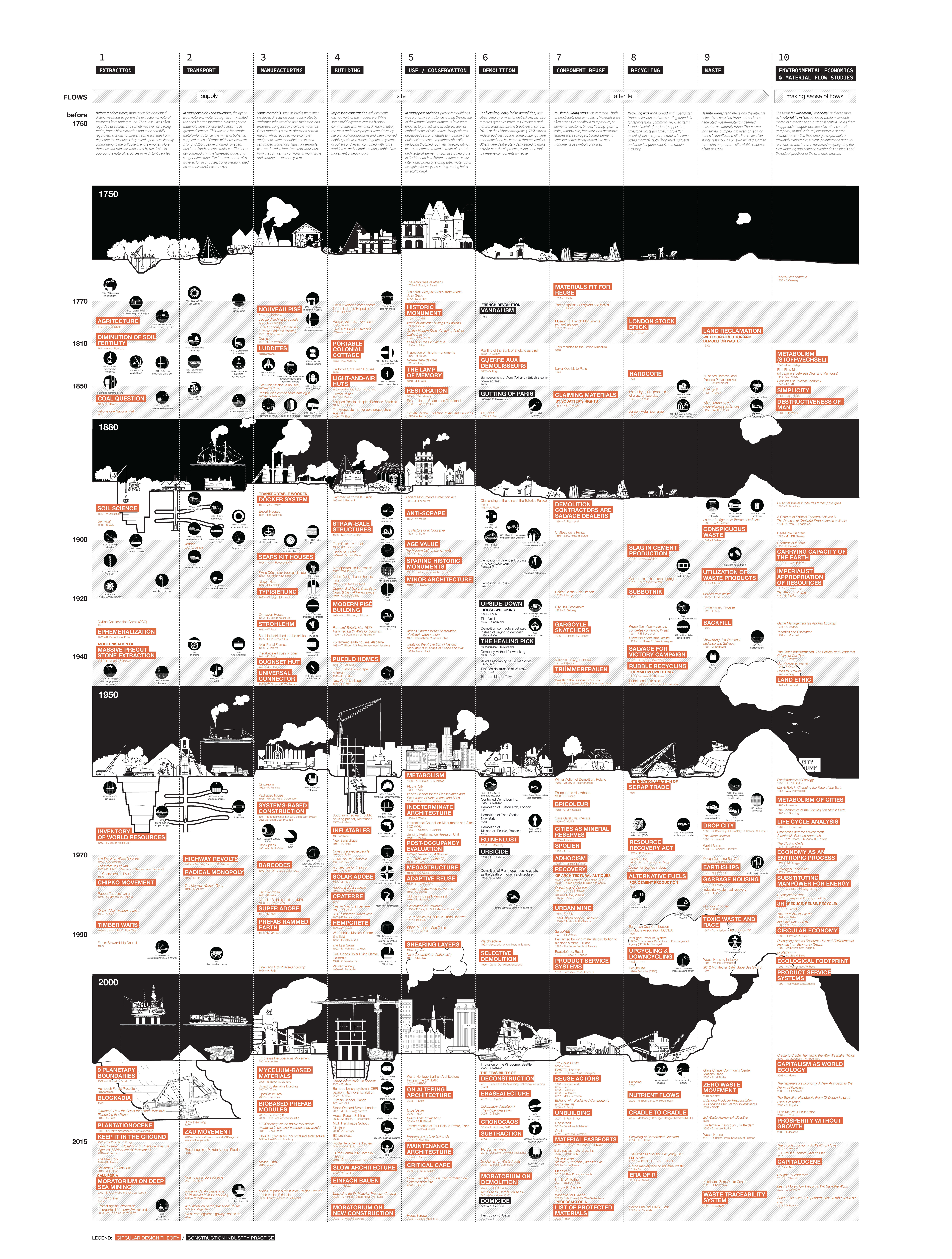September 11–October 25, 2014
The wool of a black sheep, I was surprised to learn, isn’t black at all—it comes in numerous subtle variations of dark brown. Helen Mirra’s recent exhibition “Waulked,” offers several such lessons; seemingly random observations about organic materials, traditional crafts, and what could be called “more grounded” ways of being in the world.
The show’s centerpiece is a room full of Waulked Triangles (all 2013), identically shaped pieces of dark cloth draped over cedar wood supports. Each strip combines the wool of two different black sheep (which are identified in the works’ titles by location). Up close, the Triangles are engagingly tactile and reveal subtle differences in texture and color. Some portions are smooth and evenly covered with white wool fuzz; others are nubby, knotted, or glossy. There are sections that appear to be the wool of an individual sheep, and in some pieces, thin strands dyed with the inks of wild mushrooms delicately underline interwoven portions. The technique is identical in each Triangle—an apparently straightforward weaving of warp and weft—but the gradual accumulation of differences in the wool brings the source of each object’s material, in its individual and living reality, into intense focus.
“Waulking” is an obsolete term for finishing a weave, and while the Waulked Triangles were hand-woven by the artist—a process that involves repeatedly walking the length of a traditional loom—the title is perhaps less about the production process than its rhyming connection to another work on view. Walking Commas, June 28, Cape Breton (2014) appears to document a walk in a forest. Seven black-and-white shots of forest paths and grassy ground are accompanied by pages with a continuous sentence running across the bottom of the frame—“Up steep hillside in mixed woods, red ammunition cartridge, narrow trail across stream”—a series of observations that end mid-sentence, giving the text a fragmentary, snapshot-like quality. Like the Triangles, Walking Commas represent, in all their abstraction, the time and experiences behind their production: the meandering amble through the forest and the repetitive movements along the length of the loom that form the very basis of the resulting textiles, texts and photographs, which retain something of the serenity of the experience.
Mirra’s walks are, in fact, ongoing: during the first three weeks of the show, she was in New York for Half-smiler, a project that was part of a group exhibition marking the 15th anniversary of Artadia.1 The public was invited to join her on a three-week series of daily walks, each beginning at a cemetery in Brooklyn or Queens, and continuing “in a generally northwesterly direction (away from the sun)” to an endpoint in Manhattan. Her description of the project includes a quote from Vietnamese Buddhist monk, author, and activist, Thích Nhất Hạnh: “We seem to move forward, but we don’t go anywhere; we are not drawn by a goal. Thus we smile while we are walking.”
Mirra has been walking professionally for several years now, though Half-smiler was the first to invite the audience to join in. Recent projects have involved documenting sounds from walks (Hourly Directional, with Ernst Karel, in 2013); making prints of objects found on her path (Hourly Directional Field Notations, 2011–13), and collecting rocks (33 Mountain Hikes, 2009). Half-smiler, we can also assume, will provide experience and materials for a future work, perhaps involving the flora and fauna of the outer boroughs.
Her waulkings and her walks, however, remain deliberately tangential practices, as Mirra is reluctant to consider the walks as artworks: “Coincident not correlate,” she wrote in response to my query about the connection between Half-smiler and her gallery show.2 She added that Half-smiler is an “experiment” in line with Mierle Laderman Ukeles’s Touch Sanitation (1977–80) and Douglas Huebler’s Variable Piece #70 (1971), both amorphous projects that allowed the artists to move beyond the defined boundaries of their practice as visual artists towards a broader engagement with their environment.
To judge from “Waulked,” walking offers Mirra a way to ground her work in the world, in a tangible practice that is both consistent and dynamic. Her attention to her surroundings and craft make for engaging objects and experiences: her Triangles draw attention to their materiality and the labor involved in their production, and quietly but insistently demand acknowledgment of their importance. The experience may not add up to a clear and coherent message, but the lack of grandiloquence seems to be precisely the point: here, the black sheep stand out, not as metaphors, but as actual black—or rather, brown—sheep. “Waulked” coaxes the viewer toward a more concrete mode of attention; to think about the environment not as a series of abstractions, but as the fabric of everyday encounters that are all too often passed over.
Artadia is a New York-based grant-making organization that counts Mirra among its previous award recipients.
From an email exchange with the artist, October 8, 2014.








